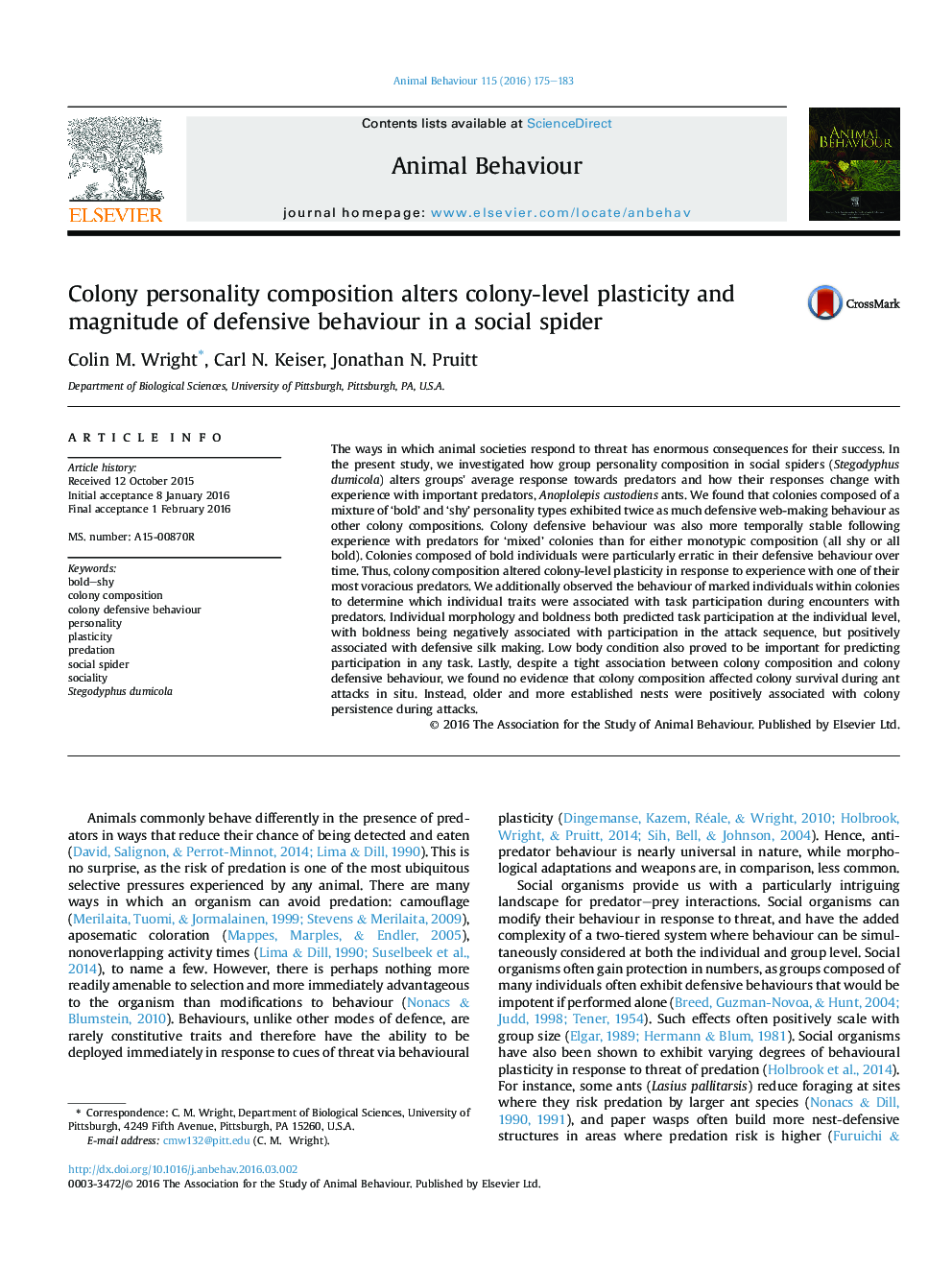| Article ID | Journal | Published Year | Pages | File Type |
|---|---|---|---|---|
| 8489116 | Animal Behaviour | 2016 | 9 Pages |
Abstract
The ways in which animal societies respond to threat has enormous consequences for their success. In the present study, we investigated how group personality composition in social spiders (Stegodyphus dumicola) alters groups' average response towards predators and how their responses change with experience with important predators, Anoplolepis custodiens ants. We found that colonies composed of a mixture of 'bold' and 'shy' personality types exhibited twice as much defensive web-making behaviour as other colony compositions. Colony defensive behaviour was also more temporally stable following experience with predators for 'mixed' colonies than for either monotypic composition (all shy or all bold). Colonies composed of bold individuals were particularly erratic in their defensive behaviour over time. Thus, colony composition altered colony-level plasticity in response to experience with one of their most voracious predators. We additionally observed the behaviour of marked individuals within colonies to determine which individual traits were associated with task participation during encounters with predators. Individual morphology and boldness both predicted task participation at the individual level, with boldness being negatively associated with participation in the attack sequence, but positively associated with defensive silk making. Low body condition also proved to be important for predicting participation in any task. Lastly, despite a tight association between colony composition and colony defensive behaviour, we found no evidence that colony composition affected colony survival during ant attacks in situ. Instead, older and more established nests were positively associated with colony persistence during attacks.
Related Topics
Life Sciences
Agricultural and Biological Sciences
Animal Science and Zoology
Authors
Colin M. Wright, Carl N. Keiser, Jonathan N. Pruitt,
